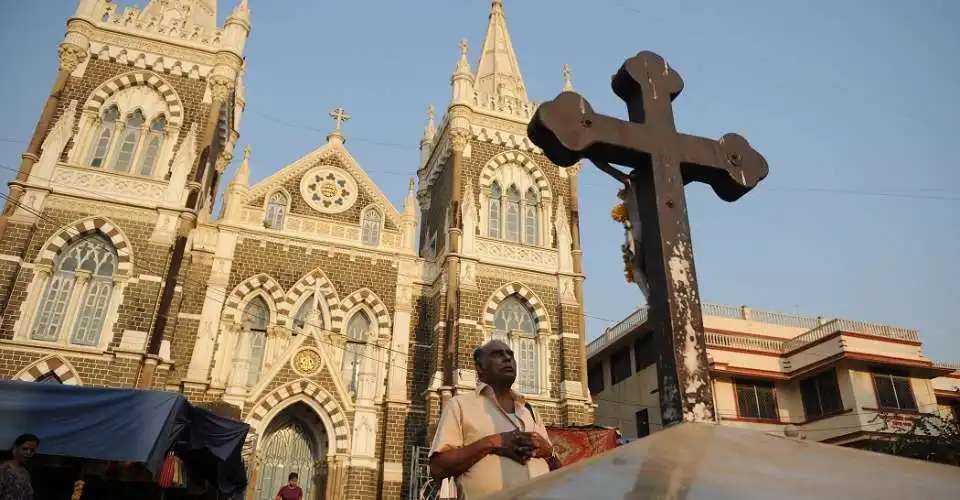
An Indian Catholic man prays outside the Mount Mary Church in Mumbai in this file photo. (Photo: AFP)
Last month, Rahul Narwekar, the speaker of the state legislative assembly, urged the House to consider a new law bringing religious places and properties of all faiths under state control.
He said Indian secularism demands treating all religions equally, but people question the government controlling only Hindu religious places.
“I think all religions should be treated equally, and as such, worshipping places of all religions should be brought under the control of the government,” he said.
Gracias said the government is “floating this idea to gauge our response, but it will certainly create disturbance in our communities.”
Godfrey Pimenta, trustee of Watchdog Foundation, a non-government organization, said the proposal “should be dismissed outright.”
He said Christian properties and places of worship were already governed by laws such as the Societies Registration Act of 1860 and the Indian Trusts Act of 1882.
“The proposed government control over religious places contradicts these fundamental rights and undermines the secular framework of our nation.”
He said the Indian constitution guarantees that the state “will not discriminate, patronize, or interfere in the practice of any religion.”
Mathai, a former vice chairman of the Maharashtra State Minorities Commission, further stressed that no religion should be subject to government control.
“For faith belongs to individuals and is very personal, not institutions of power,” he added.
Jesuit Father Cedric Prakash said there are adequate provisions in the Indian Constitution that guarantee every citizen the right to preach, practice, and propagate one’s religion and to administer one’s place of worship.
“Should there be any fraudulent practice or malpractice in exercising this authority, there are mechanisms and laws to address them,” he noted.
Melwyn Fernandes, general secretary of the Mumbai-based Association of Concerned Christians, said the Indian constitution allows individuals and religious denominations to practice and manage their affairs without unwarranted state interference.
“The government cannot interfere with places of worship of any faith,” he said.
source : ucanews
